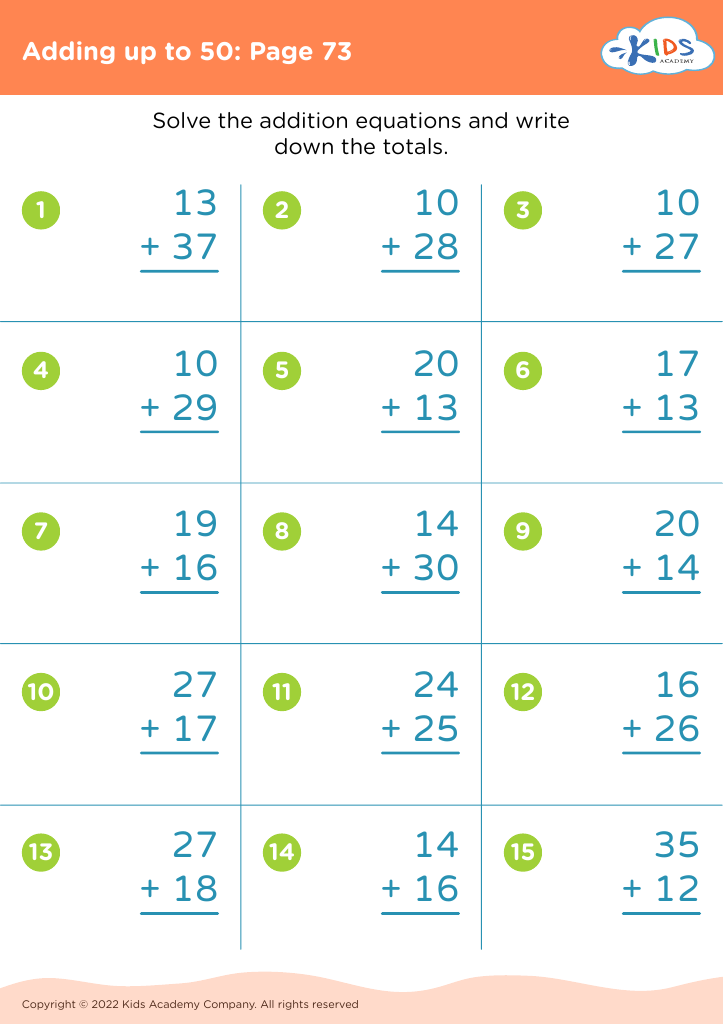Matching skills Addition Worksheets for Ages 4-7
3 filtered results
-
From - To
Discover engaging and educational Matching Skills Addition Worksheets tailor-made for children ages 4-7! Spark your child's love for learning with fun activities designed to enhance both addition and matching abilities. These vibrant, age-appropriate worksheets offer a perfect blend of visual and arithmetic exercises. Ideal for early learners, they help improve critical thinking, problem-solving, and fine motor skills. Crafted by educational experts, our worksheets are effective for in-class or at-home practice. Make learning addition enjoyable and effortless with our easy-to-use, printable worksheets from Kids Academy today!
Parents and teachers should care about matching skills addition for children ages 4-7 because these foundational math skills are crucial for cognitive development and academic success. At this early stage, children's brains are highly receptive to learning new concepts, making it an ideal time to introduce basic arithmetic in a fun, engaging way. Matching skills are an integral part of understanding addition, as they help children recognize relationships between numbers and quantities.
By using matching activities, children develop essential number sense, which is the ability to understand and manipulate numbers flexibly. This foundational understanding not only helps with addition but also paves the way for more complex mathematical concepts in the future. Additionally, activities that involve matching and addition foster critical thinking, pattern recognition, and problem-solving skills, which are vital across all areas of learning.
Engaging children in these activities can also instill a positive attitude toward math, reducing anxiety and building confidence. When children see math as enjoyable and manageable, they are more likely to approach it with enthusiasm in later years. Therefore, parents and teachers play a crucial role in providing opportunities and resources for children to develop these skills, setting the stage for long-term academic achievement and a lifelong appreciation for learning.




















